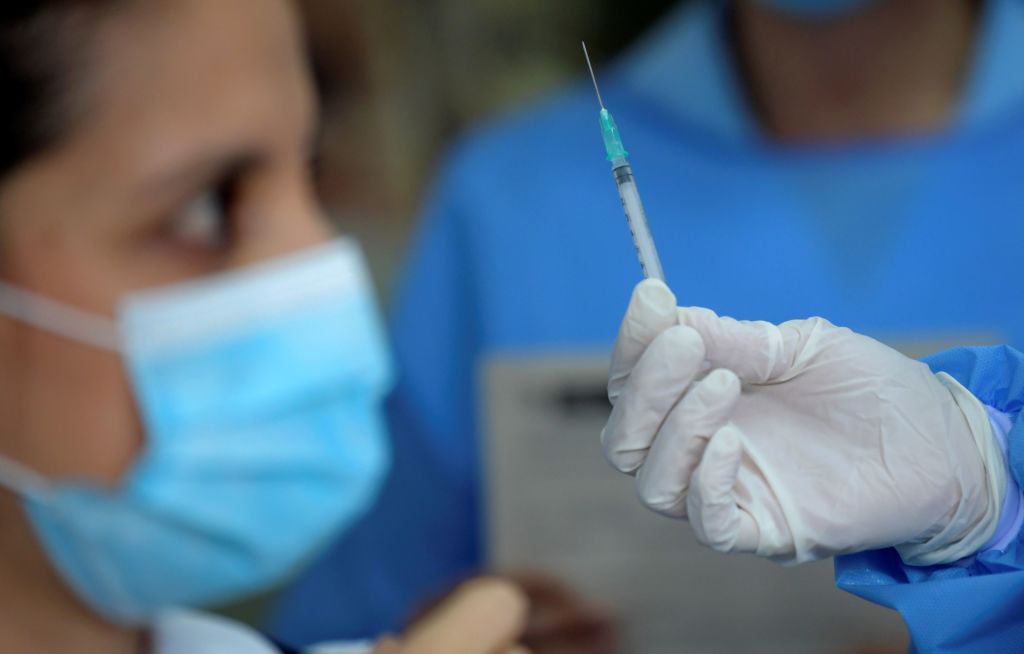Pfizer and Moderna vaccines prove 92 percent effective with just 1st dose


A free daily email with the biggest news stories of the day – and the best features from TheWeek.com
You are now subscribed
Your newsletter sign-up was successful
Just one dose of the Moderna and Pfizer two-shot coronavirus vaccines is seemingly nearly as good two.
In a study published Thursday in the New England Journal of Medicine, a pair of Canadian-based researchers suggested an amendment to the determined efficacy of the Pfizer vaccines after just one shot. While Pfizer and BioNTech reported their vaccine was just 52.4 percent effective at preventing infection after the first dose, the researchers noted that this data includes results from within the first two weeks after inoculation, "when immunity would have still been mounting." After two weeks, that efficacy mounted to 92.6 percent, matching the first-dose efficacy of 92.1 percent reported from the Moderna vaccine as well. After two doses, the Pfizer vaccine is 95 percent effective, and Moderna's is 94 percent.
The Canadian-based researchers' interpretations of the Pfizer results led them to suggest in the letter that vaccine distributors delay giving people the second dose. This would let distributors get first doses to more at-risk people instead of leaving them "completely unprotected" — something the researchers called "a matter of national security that, if ignored, will certainly result in thousands of COVID-19–related hospitalizations and deaths this winter in the United States."
The Week
Escape your echo chamber. Get the facts behind the news, plus analysis from multiple perspectives.

Sign up for The Week's Free Newsletters
From our morning news briefing to a weekly Good News Newsletter, get the best of The Week delivered directly to your inbox.
From our morning news briefing to a weekly Good News Newsletter, get the best of The Week delivered directly to your inbox.
Another study from January led Pfizer and BioNTech to say Wednesday that they are unsure if the vaccine will be effective at protecting against the B.1.351 variant first found in South Africa. The study published in the New England Journal of Medicine found the vaccine was still capable of neutralizing the virus within the B.1.351 strain, and that trials haven't shown the variant reduces the vaccine's protection in people. Still, the companies may end up creating a booster shot to ensure the vaccine remains effective against the highly transmissible strain.
A free daily email with the biggest news stories of the day – and the best features from TheWeek.com
Kathryn is a graduate of Syracuse University, with degrees in magazine journalism and information technology, along with hours to earn another degree after working at SU's independent paper The Daily Orange. She's currently recovering from a horse addiction while living in New York City, and likes to share her extremely dry sense of humor on Twitter.
-
 Political cartoons for February 16
Political cartoons for February 16Cartoons Monday’s political cartoons include President's Day, a valentine from the Epstein files, and more
-
 Regent Hong Kong: a tranquil haven with a prime waterfront spot
Regent Hong Kong: a tranquil haven with a prime waterfront spotThe Week Recommends The trendy hotel recently underwent an extensive two-year revamp
-
 The problem with diagnosing profound autism
The problem with diagnosing profound autismThe Explainer Experts are reconsidering the idea of autism as a spectrum, which could impact diagnoses and policy making for the condition
-
 Trump HHS slashes advised child vaccinations
Trump HHS slashes advised child vaccinationsSpeed Read In a widely condemned move, the CDC will now recommend that children get vaccinated against 11 communicable diseases, not 17
-
 FDA OKs generic abortion pill, riling the right
FDA OKs generic abortion pill, riling the rightSpeed Read The drug in question is a generic version of mifepristone, used to carry out two-thirds of US abortions
-
 RFK Jr. vaccine panel advises restricting MMRV shot
RFK Jr. vaccine panel advises restricting MMRV shotSpeed Read The committee voted to restrict access to a childhood vaccine against chickenpox
-
 Texas declares end to measles outbreak
Texas declares end to measles outbreakSpeed Read The vaccine-preventable disease is still spreading in neighboring states, Mexico and Canada
-
 RFK Jr. shuts down mRNA vaccine funding at agency
RFK Jr. shuts down mRNA vaccine funding at agencySpeed Read The decision canceled or modified 22 projects, primarily for work on vaccines and therapeutics for respiratory viruses
-
 Measles cases surge to 33-year high
Measles cases surge to 33-year highSpeed Read The infection was declared eliminated from the US in 2000 but has seen a resurgence amid vaccine hesitancy
-
 Kennedy's vaccine panel signals skepticism, change
Kennedy's vaccine panel signals skepticism, changeSpeed Read RFK Jr.'s new vaccine advisory board intends to make changes to the decades-old US immunization system
-
 Kennedy ousts entire CDC vaccine advisory panel
Kennedy ousts entire CDC vaccine advisory panelspeed read Health Secretary RFK Jr. is a longtime anti-vaccine activist who has criticized the panel of experts
